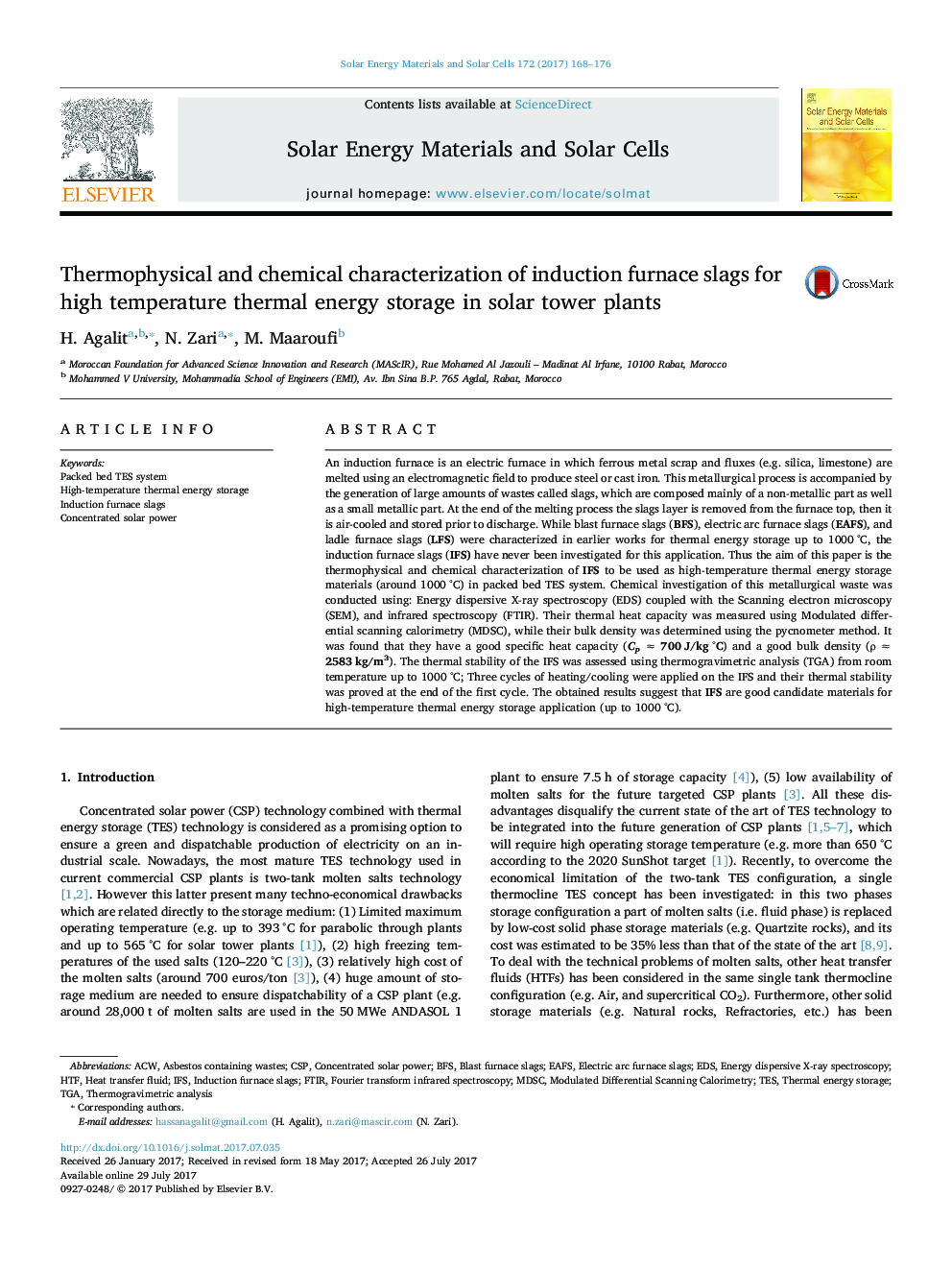| کد مقاله | کد نشریه | سال انتشار | مقاله انگلیسی | نسخه تمام متن |
|---|---|---|---|---|
| 6456909 | 1420651 | 2017 | 9 صفحه PDF | دانلود رایگان |
- Induction furnace slags (IFS) are good candidates for high temperature (up to 1000 °C) TES application in solar tower plants.
- IFS have good thermophysical properties: Cp â 700 J/kg °C, and Ï â 2583 kg/m3.
- IFS are thermally stable up to 1000 °C.
- IFS have high energy density per volume: 208 kWh/m3 at 400 °C.
- Valorization of IFS wastes into high temperature TES materials.
An induction furnace is an electric furnace in which ferrous metal scrap and fluxes (e.g. silica, limestone) are melted using an electromagnetic field to produce steel or cast iron. This metallurgical process is accompanied by the generation of large amounts of wastes called slags, which are composed mainly of a non-metallic part as well as a small metallic part. At the end of the melting process the slags layer is removed from the furnace top, then it is air-cooled and stored prior to discharge. While blast furnace slags (BFS), electric arc furnace slags (EAFS), and ladle furnace slags (LFS) were characterized in earlier works for thermal energy storage up to 1000 °C, the induction furnace slags (IFS) have never been investigated for this application. Thus the aim of this paper is the thermophysical and chemical characterization of IFS to be used as high-temperature thermal energy storage materials (around 1000 °C) in packed bed TES system. Chemical investigation of this metallurgical waste was conducted using: Energy dispersive X-ray spectroscopy (EDS) coupled with the Scanning electron microscopy (SEM), and infrared spectroscopy (FTIR). Their thermal heat capacity was measured using Modulated differential scanning calorimetry (MDSC), while their bulk density was determined using the pycnometer method. It was found that they have a good specific heat capacity (Cp â 700 J/kg °C) and a good bulk density (Ï â 2583 kg/m3). The thermal stability of the IFS was assessed using thermogravimetric analysis (TGA) from room temperature up to 1000 °C; Three cycles of heating/cooling were applied on the IFS and their thermal stability was proved at the end of the first cycle. The obtained results suggest that IFS are good candidate materials for high-temperature thermal energy storage application (up to 1000 °C).
Journal: Solar Energy Materials and Solar Cells - Volume 172, December 2017, Pages 168-176
